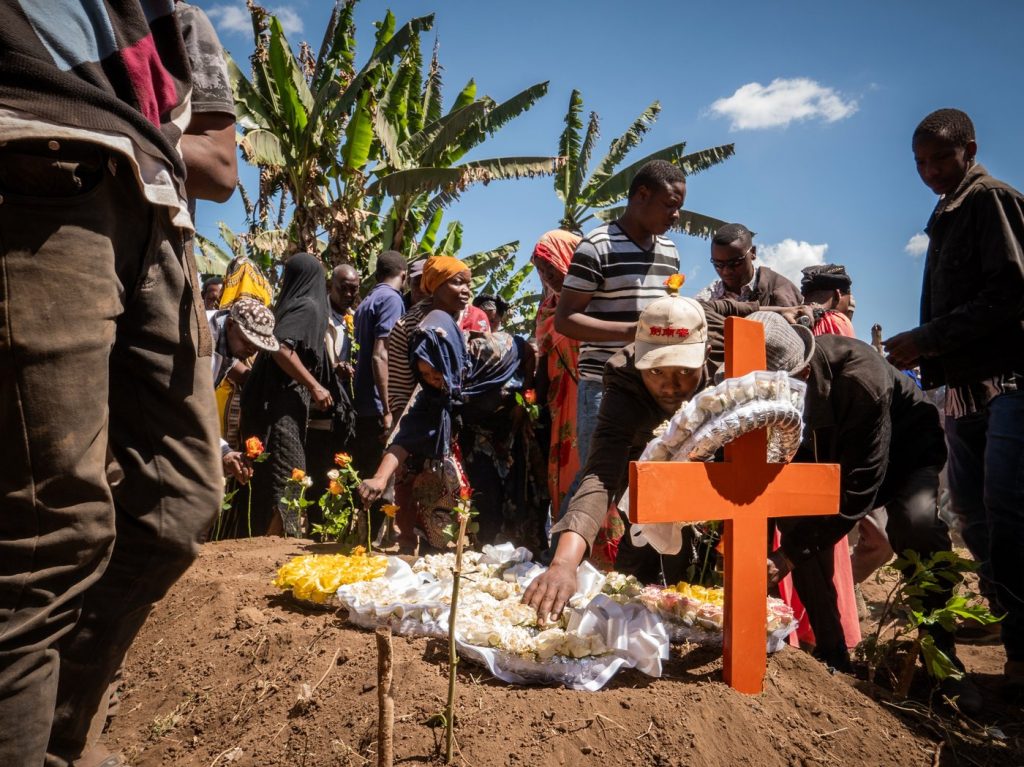NAIROBI, Kenya (AP) — Tanzanian authorities have charged hundreds of individuals with treason following unrest connected to the disputed elections held last month. This marks a significant escalation in political tensions as the nation grapples with violence that has reportedly led to numerous fatalities, although the precise death toll remains uncertain. Various charge sheets made public on Saturday indicate that in addition to those criminally charged in Dar es Salaam, many more across the country are facing similar treason allegations.
The Tanzanian police have also issued arrest warrants for prominent opposition figures who have not yet been detained. Notable among them are Brenda Rupia, the communications director for the Chadema opposition party, and John Mnyika, its secretary-general. The Chadema party is the leading opposition force in Tanzania, and its leader, Tundu Lissu, has been incarcerated for several months and faces treason charges after advocating for electoral reforms prior to the voting on October 29.
Amid the political turmoil, questions loom regarding the government's transparency about the death toll arising from efforts by security forces to suppress riots and protests orchestrated by the opposition prior to and following the election. Chadema claims that over 1,000 individuals have lost their lives and accuses security forces of trying to conceal the extent of the casualties by hiding bodies. A statement from the Catholic Church in Tanzania suggests that hundreds are likely to have been killed.
President Samia Suluhu Hassan, who ascended to the presidency in 2021 following the death of her predecessor, was reported to have received more than 97% of the vote, according to official tallies. She faced 16 candidates from various smaller parties, as both Lissu and Luhaga Mpina of the ACT-Wazalendo party were banned from contesting. Rights organizations have characterized the pre-election climate as repressive, citing incidents of enforced disappearances, arbitrary arrests, and extrajudicial killings, claims that the Tanzanian government denies.
This week, the African Union (AU) observers released a report indicating that the recent elections did not meet AU principles, normative frameworks, and international standards essential for democratic elections. The observers documented instances of ballot stuffing at multiple polling stations and situations where voters were issued more than one ballot. They also remarked that the atmosphere surrounding the elections was not conducive to a peaceful process or acceptance of electoral outcomes.
Tanzania has experienced a history of single-party rule since the onset of multi-party politics in 1992. Critics of the current government point out that while previous leaders managed to suppress opposition, they did so while allowing some degree of tolerance. In contrast, Hassan's governance is viewed as increasingly authoritarian, diverging from youth-led democratic movements emerging throughout the region.
The Chama cha Mapinduzi party, linked to the Communist Party of China, has governed Tanzania since its independence from Britain in 1961, a dominance that Hassan has further cemented through her electoral victory.
Overall, the political climate in Tanzania is marked by increasing repression and questions regarding the legitimacy of the electoral process, with significant repercussions for opposition members and the general populace alike.











